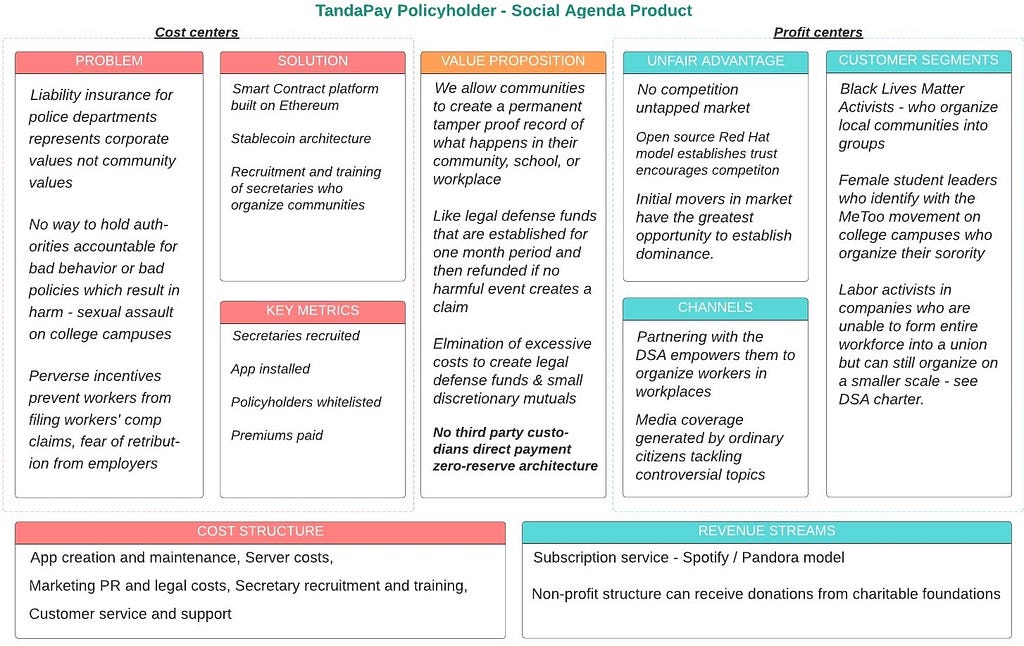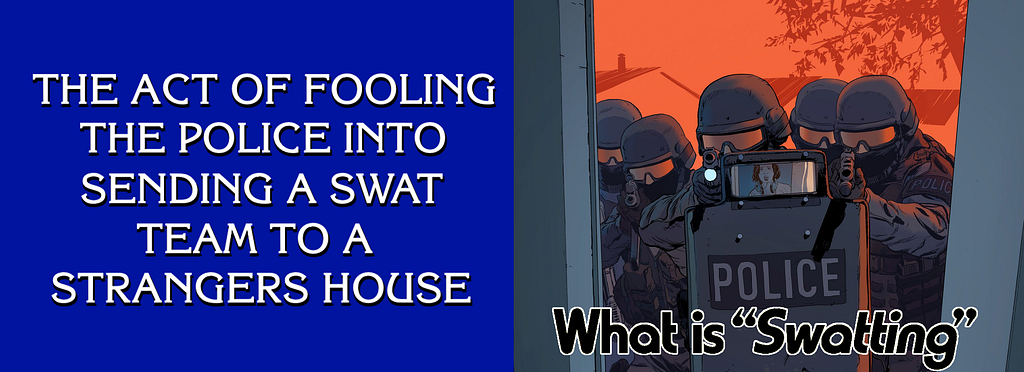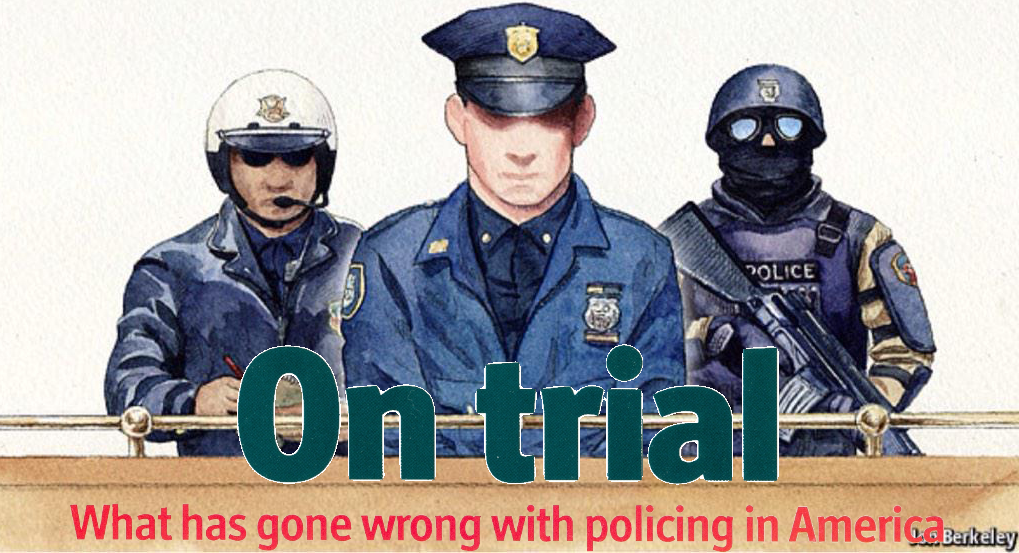Latest news about Bitcoin and all cryptocurrencies. Your daily crypto news habit.
 You say you want a revolution, well, you know
You say you want a revolution, well, you know
We all want to change the world. How are we supposed to change the world when protests don’t produce the change we want to see? When unarmed members of local communities get shot by the police, then people protest. Is this type of protesting the only way we can produce change? We need a method of protest that lasts longer than a single news media cycle. We need a 24-by-7 method of protesting violence, hate and racial discrimination in our communities. We have to organize communities so that they exist in a continual state of protest with minimal work or effort expended on the part of participants.
This requires us to shift our energy away from our traditional reactive response which has been focused on human tragedy. We need a proactive response focused not on what matters to us, human lives, but what matters most to the authorities who institute harmful policies.
Instead of marching feet in the streets, we need organization which produces litigation. The only way we can get authorities to change their harmful policies and agendas is by hitting them as hard as we can where they feel it the most, their pocketbooks.
You say you got a real solution, well, you know
We’d all love to see the plan. How can we organize communities in ways that are more effective than existing methods of protest? What exactly is TandaPay supporting communities to do? TandaPay empowers people to group together to form small insurance pools. Insurance is a method of creating an official record of things that happened in the past. TandaPay allows communities to create a permanent tamper-proof record of what happened in their community. This record has authority because money is speech. Policyholders are now able to speak authoritatively about what they believe happened in the past by paying premiums and approving claims.
The traditional way to think about an insurance claim is that it covers the value of a loss which occurred in the past. This is to use insurance to react to a loss and to repair the damage. TandaPay can do that, but it can also be used proactively to try to change the policies of police departments. But before you can understand how TandaPay might do this you have to understand how policing really works.
The reality is that bad policing is NOT expensive enough If the police were sued more often they would probably check the caller ID BEFORE putting others in jeopardy
If the police were sued more often they would probably check the caller ID BEFORE putting others in jeopardy
What prevents citizens from getting the daylights beaten out of them by police officers is not the federal government, nor is it the state government. Its not Internal Affairs or the FBI or CIA or any government agency. Surprisingly, what prevents police departments all over this country from injuring or killing civilians is insurance companies. I would bet this is the first time you’ve ever heard anyone say that. Insurance companies have more leverage than any other institution to force the police to change their conduct:
- Episode 901: Bad Cops Are Expensive
- Police Misconduct Is Increasingly a Financial Issue
- How Insurance Companies Can Force Bad Cops Off the Job
- To Change Police Practices, A Push For Liability Insurance In Minneapolis
- How The Insurance Industry Helps Police Departments Tackle Bad Behavior
So when I hear someone say black lives matter what I think is:
Black lives matter more to this community than they do to the corporate insurance company protecting the police department from lawsuits.
No $***, and here’s the data that shows cops kill black people at a higher rate than white people. But where’s the data that shows that lawsuits and settlements for white victims pay out at higher rates than lawsuits and settlements for black victims? I may be biased but I’m willing to bet money that its true. I doubt anyone would want to bet against me.
We need to make bad policing REALLY expensive until change occurs
This is understood to be the weaponizing of insurance. You’ve got to fight fire with fire as they say. This is to use insurance to fight insurance. But to use insurance to fight proactively you must think about how to use it differently. If you only use insurance to pay claims when people are injured or killed by the police this is reactive. If you use insurance as a legal defense fund to help victims’ families sue police departments this is proactive. Only proactive measures can extract the greatest cost and thus produce the most change. Let me break it down in this way:
- An insurance premium is a measure of future risk.
- The risk in this case is liability associated with a future lawsuit.
- The greater the chance of a lawsuit the more the risk there is.
- The larger the cost of a future lawsuit the more the liability there is.
- An insurer raises the premium when bad cops do bad things.
- A police department can lower their premiums if they do the right things.
- A credible threat of a future lawsuit can force the police to act differently.
Police departments have had to shut down because their premiums exceeded what the city was willing to pay to keep their police force operating. A high premium is the insurer telling the police force that they have a choice to either reform or stop policing. I would bet you never thought that insurance companies had so much power, but they do. Insurance is very powerful.
But the problem is that corporate insurers don’t see the world the way local communities do. Insurers are run by mostly white people out of cities like New York or Boston. Do you really think they value black lives the way they value white lives? Why should they if the payment required to settle a lawsuit for a white victim costs double or triple what it costs to settle a lawsuit for a black victim. So what do we need to do? We need to weaponize insurance by transforming it into a legal defense fund for local communities. We need to put legal defense funds into the hands of local people. The goal is that better legal representation would extract the same cost from police departments for black victims as lawsuits do for white victims. The day that a lawsuit for a black victim is expected to pay out the same as a lawsuit for a white victim will be a triumph for local communities.
Then black lives will be valued the same by insurers as white lives. And that will be the day that black lives matter to insurance companies.
The bean counters in New York who price policies for police departments will have updated their actuarial tables, or whatever it is they do. In the policy tables that calculate the liability of future litigation a black life will be worth more than it is now. The system that prices the premiums for police departments will enforce that settlements for a lawsuit do not take account of skin color. The goal is that the liability associated with any lawsuit is color blind. When the cost of these premiums change then the procedures and practices of police departments will also be forced to change. Indirectly this will enforce that the value of a black life is equal to the value of a white life, and that day will be a great day.
Insurance reflects our values
TandaPay empowers communities to fund litigation. Well funded litigation is more effective litigation. The credible threat of litigation is the only way to change how the police treat people in a community. This is because the insurers who set premiums are the only ones who can hold the police accountable to change bad policies, and to remove bad cops.
Liability insurance for police departments are priced to reflect the values of the insurance corporation. Corporations value money. High risk, high liability departments are expensive and this is what results in expensive premiums.
A TandaPay policy used by a community reflects the values of that community. The premiums people are willing to pay likely reflects how a community feels about their local law enforcement. Communities value lives. Effective litigation raises the value of black lives until it arrives at parity with the value of white lives.
The long road ahead
The goal of this article is to provide an explanation of my aspirations and desires when working on P2P insurance these past 5 years. Now people have a reference point to understand who I am and what I am doing. The value of working on this problem has been it’s incredible potential for helping small communities to organize. Blockchain technology can enable coordination that is faster, cheaper, and far more effective. This coordination allows communities to enact changes locally which are meaningful to them.
If people find the article speaks to them then it should lead them to contact me for further engagement to see how realistic this solution is and how close it is to being implemented.
I apologize if the language is provocative, but at least the article isn’t boring. People are upset about police brutality for good reason. There is too big of a divide between the culture and values of the police force and its insurers and the culture and values of the communities which the police serve. We should expect those in authority to be held accountable to understand the perspective of their local communities.
To make this happen we have to get TandaPay to work. Then we have to help communities who need it the most to use the technology to promote social change. This will require a lot of effort by many people, but the end result will be worth it. Finally, we have found a technology which is capable of organizing people to accomplish their social agenda.
Speaking as a means to effect change
Social change requires people to speak truth to power. Greater innovations in technology have given humanity greater tools with which to communicate. TandaPay is a step in that evolution. It empowers communities to fund litigation for the purpose of demanding that authorities seek a moral response to society’s problems. When authorities offer up answers which are convenient for them yet lacking in sincerity, given the severity of the impact a policy has on peoples lives, what should people do?
It may sound cliche to say that TandaPay’s goal is to provide a means whereby people can obtain justice. But when President Obama announced that Justice Souter would be retiring he described justice in this way:
Justice is about how our laws affect the daily realities of people’s lives. Whether they can make a living and care for their families. Whether they feel safe in their homes and welcome in their own nation. I view that quality of empathy of understanding and identifying with people’s hopes and struggles as an essential ingredient for arriving at just decisions and outcomes. I will seek somebody who is dedicated to the rule of law, who honors our constitutional traditions, who respects the integrity of the judicial process and the appropriate limits of the judicial role. I will seek somebody who shares my respect for constitutional values on which this nation was founded and who brings a thoughtful understanding of how to apply them in our time.
We are all familiar with the battle cry of “no justice, no peace,” but what options do people really have to remedy unjust policies which affect their daily lives? They have no other method to remedy what they view as injustice other than to protest. To protest is to speak with authority. TandaPay is a protocol for protest, a protocol enabling communities to speak and to record their own historical version of events. This allows communities to object to what they feel is unfair treatment and to protect themselves from what they understand to be injustice. This is the goal of the TandaPay protocol.
What P2P Insurance Means to Me was originally published in Hacker Noon on Medium, where people are continuing the conversation by highlighting and responding to this story.
Disclaimer
The views and opinions expressed in this article are solely those of the authors and do not reflect the views of Bitcoin Insider. Every investment and trading move involves risk - this is especially true for cryptocurrencies given their volatility. We strongly advise our readers to conduct their own research when making a decision.
